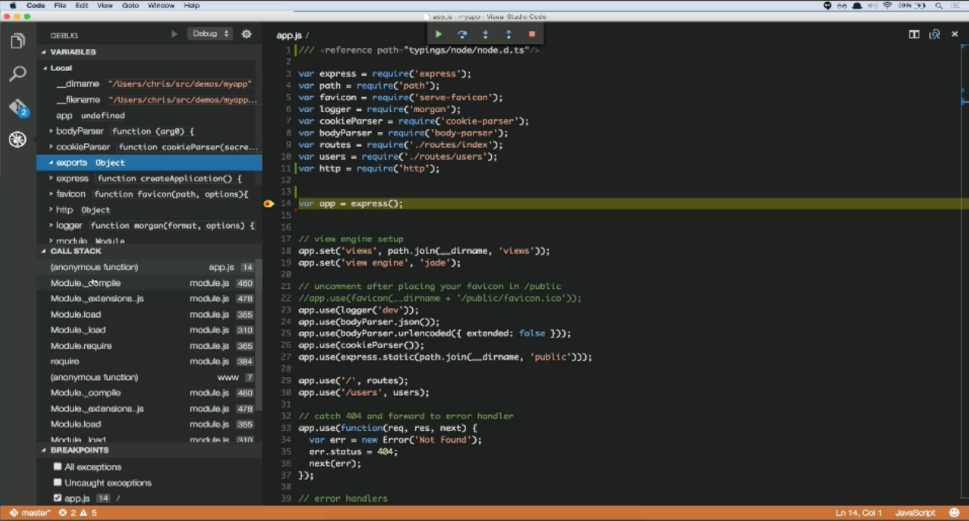

Select the toolset that matches your compilers and Linux environment and press OK. There are four platform toolsets to choose from: GCC for Remote Linux, Clang for Remote Linux, GCC for Windows Subsystem for Linux, and Clang for Windows Subsystem for Linux. Right-click on the project in the Solution Explorer and select Properties. We will first select the project’s platform toolset. This project will open a readme with some instructions about its capabilities. To create a new MSBuild-based Linux Console Application in Visual Studio, filter the language to C++, the platform to Linux, and select “Console Application”. Learn more about options for creating a Linux environment in our documentation. Start SSH with the following command: sudo service start ssh
#Visual studio code linux install
Sudo apt install -y build-essential gdb rsync zip openssh-server
#Visual studio code linux update
In a Debian-based Linux environment, this is as easy as: sudo apt update You can use any Linux distribution that has SSH, gdb, rsync, zip, and a compiler (clang or GCC) installed. You will need a Linux machine, or you can use the Windows Subsystem for Linux. Learn more about installing the Linux development with C++ workload in our documentation. The workload installs in under 10 minutes. Under the section “Other Toolsets” you will find Linux Development with C++. To install it, start the Visual Studio installer and choose to either install or modify an existing installation. Visual Studio 20 include the C/C++ Linux Development workload. Install Workload for Linux development with C++ If you are new to using Visual Studio for C++ development, a great starting point is our guide to Getting Started with Visual Studio.
#Visual studio code linux how to

For up-to-date documentation see Linux development with C++.įor an overview of the Visual Studio capabilities described in this article, see Develop C and C++ applications.This post was updated on December 11, 2020


 0 kommentar(er)
0 kommentar(er)
